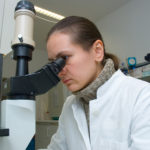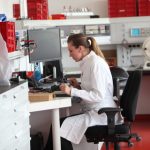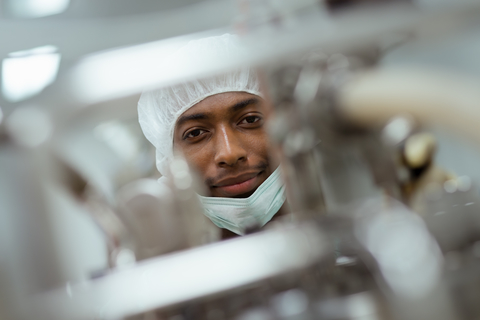Rob Bristow appointed as Director of the Manchester Cancer Research Centre
Professor Rob Bristow, one of the world’s leading prostate cancer experts has been appointed by the University of Manchester to lead its cancer research strategy and to be the new Director of the Manchester Cancer Research Centre (MCRC) (University of Manchester, 2017). He will take up his post in August. Professor Dame Nancy Rothwell, President … Continue reading Rob Bristow appointed as Director of the Manchester Cancer Research Centre

Device being developed that can check lung problems in someone’s home
Professor Mark Williams from the University of South Wales has been awarded £75,000 from the Welsh Government to make a device that can check for lung problems in a someone’s home (University of South Wales, 2017). The smart device will flag-up lung problems, and could potentially save the NHS money by reducing GP visits, highlighting … Continue reading Device being developed that can check lung problems in someone’s home

Urine test finds people aren’t taking their blood pressure medication
University of Manchester researchers together with their UK and overseas collaborators have found out that more than one third of 1,400 people with high blood pressure have not been taking their blood pressure medication (University of Manchester, 2017). High blood pressure is the single most important risk factor for health loss and premature death globally, … Continue reading Urine test finds people aren’t taking their blood pressure medication

Key gene may be the underlying cause of inflammatory bowel disease
A key gene that helps to explain an underlying cause of inflammatory bowel disease (IBD) has been identified by scientists at the University of Edinburgh and University of Bristol (University of Bristol, 2017). The study shows blocking the gene harms vital parts of the cell and leads to bowel disease, while targeting these vital cell … Continue reading Key gene may be the underlying cause of inflammatory bowel disease

Blood stem cells made in the lab
After twenty years of trying, scientists have transformed mature cells into primordial blood cells that regenerate themselves and the components of blood (Nature, 2017). The work offers hope to people with leukaemia and other blood disorders who need bone marrow transplants but can’t find a compatible donor. If the findings translate into the clinic, these … Continue reading Blood stem cells made in the lab

Mind control without the side effects
A device that could help people control robotic limbs using thought alone, without the need for brain surgery, will be trialled in people with paralysis next year (New Scientist, 2017). Several groups are developing brain-machine interfaces that allow people who are paralysed to operate a bionic exoskeleton just by thinking about it. These devices decode … Continue reading Mind control without the side effects

Study suggests there’s no such thing as healthy obesity
A study by scientists at the University of Birmingham suggests that “healthy” obese people are still at higher risk of heart failure or stroke than the general population (University of Birmingham, 2017). The study, which was the largest of its kind to date, involving analysis of the GP records of 3.5 million people from across … Continue reading Study suggests there’s no such thing as healthy obesity

New app for citizen scientists to track seasonal allergies
The public are invited to download a free app to track their seasonal allergy symptoms and to help researchers understand more about why the frequency of allergies is increasing (University of Manchester, 2017). A new and improved version of the app that allows users to track their seasonal allergies as part of a major research … Continue reading New app for citizen scientists to track seasonal allergies

Some survivors of Ebola have unique retinal scars
Researchers from the University of Liverpool’s Institute of Translational Medicine have conducted a study of Ebola survivors to determine if the virus has any specific effects on the back on the eye using an ultra wide field retinal camera (University of Liverpool, 2017). To find out more about the broad-ranging symptoms of Post Ebola Syndrome … Continue reading Some survivors of Ebola have unique retinal scars

New antibody drug conjugate could be used to target treatment-resistant childhood leukaemia
Researchers at the University of Manchester have discovered that a protein called 5T4, found on the surface of cells, contributes to chemotherapy resistance in the most common type of childhood leukaemia (University of Manchester, 2017). Using a novel approach, early testing shows that targeting the protein with an antibody drug conjugate could hold promise in … Continue reading New antibody drug conjugate could be used to target treatment-resistant childhood leukaemia








